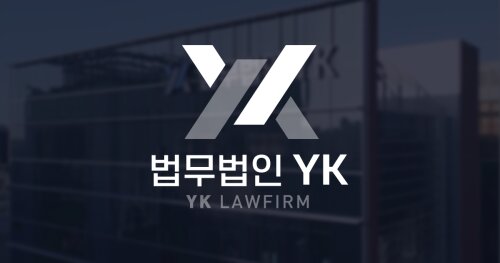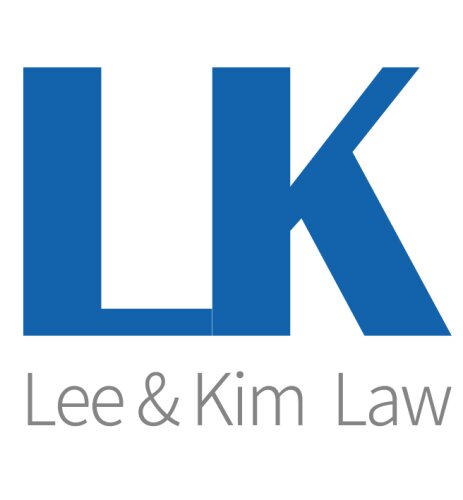Best Real Estate Contracts and Negotiations Lawyers in South Korea
Share your needs with us, get contacted by law firms.
Free. Takes 2 min.
Free Guide to Hiring a Real Estate Lawyer
Or refine your search by selecting a city:
List of the best lawyers in South Korea
About Real Estate Contracts and Negotiations
Real estate contracts and negotiations are integral components of any property transaction, whether you are buying, selling, or leasing property. These processes involve the legal transfer of property ownership and the establishment of terms under which property transactions occur. Understanding the specific legal requirements and clauses is crucial for ensuring that your interests are protected and that transactions proceed smoothly. In South Korea, real estate practices are governed by a blend of traditional customs and modern laws, making expert guidance advisable.
Law in South Korea: A Brief Overview of Real Estate Contracts and Negotiations
In South Korea, real estate transactions are heavily regulated to ensure fairness and transparency. The legal framework encompasses property laws, contract laws, and governmental regulations, making it essential for parties to understand regulatory compliance. Transactions typically involve a formal contract called a "Yakjeongseo" (약정서), which details specifications such as price, payment schedules, and other key terms. Being familiar with the standard practices, such as these formalized agreements, can help in navigating the complex landscape of property dealings.
Why You May Need a Lawyer
Navigating real estate contracts and negotiations without legal assistance can expose you to significant risks. Common situations where legal help can be beneficial include:
- Complex Transactions: Large-scale purchases or sales, involving multiple parties or commercial real estate, can significantly benefit from legal oversight.
- Contract Disputes: If disagreements arise concerning contract terms, having a legal expert can facilitate negotiation and resolution.
- Regulatory Compliance: Ensuring your transactions align with government-imposed regulations to avoid penalties.
- Property Title Issues: Verifying clear titles and addressing any encumbrances can safeguard against future disputes.
- Lease Agreements: Crafting or reviewing lease contracts for residential or commercial spaces may require legal expertise.
Local Laws Overview
Several key aspects of South Korean laws are particularly relevant to real estate contracts and negotiations:
- Real Estate Registration: The Act on the Registration of Real Estate emphasizes the importance of registering all property transactions to ensure their legality.
- Lease Protection Laws: The Housing Lease Protection Act provides substantial protection for tenants, emphasizing the need for compliant lease agreements.
- Real Estate Agents: Only licensed agents can legally facilitate transactions; thus, their guidance is frequently paramount.
- Tax Implications: Awareness of taxes, including acquisition taxes and capital gains taxes, can impact financial decisions in transactions.
Frequently Asked Questions
What is the role of a real estate agent in South Korea?
Real estate agents in South Korea are licensed professionals who help facilitate property transactions, including negotiation, documentation, and compliance with legal requirements.
How can I ensure the legality of a real estate contract?
To ensure legality, all contracts should be in writing, use clear language, comply with South Korean law, and be registered with appropriate authorities.
What are common pitfalls in real estate negotiations?
Common pitfalls include misunderstanding contract terms, underestimating the regulatory landscape, and failing to verify property titles and encumbrances.
Can foreign nationals buy property in South Korea?
Yes, foreign nationals can purchase property, but they must adhere to the Foreigner's Land Acquisition Act and notify the government upon acquisition.
What should I include in a lease agreement?
A lease agreement should detail rent, payment terms, security deposit, lease duration, maintenance responsibilities, and any specific clauses tailored to the agreement.
How do real estate taxes work in South Korea?
Various taxes apply, including acquisition tax upon purchase and capital gains tax upon sale. Each tax has its own rate and compliance requirements.
What happens if a dispute arises during a transaction?
Disputes can be resolved through negotiation, mediation, or legal action, often requiring the assistance of a lawyer for litigation or settlement agreements.
Are there government protections for homebuyers?
Yes, several laws protect buyers, including mandatory disclosure requirements from sellers and protection against unfair practices.
What are the usual steps in buying a property?
The process typically involves property search, contract drafting, due diligence, negotiation, signing, registration, and transfer of ownership.
How can a lawyer assist in commercial real estate transactions?
Lawyers provide crucial advice on regulatory compliance, contract drafting and review, negotiating terms, and resolving disputes that may arise.
Additional Resources
Consider reaching out to these resources and organizations for further assistance:
- Ministry of Land, Infrastructure and Transport (MOLIT) for guidelines and policies
- Korean Bar Association for finding qualified lawyers
- Korea Housing and Urban Guarantee Corporation for housing-related inquiries
Next Steps
If you need legal assistance in real estate contracts and negotiations, consider taking the following steps:
- Research: Start by researching lawyers or legal firms specializing in real estate.
- Consultation: Schedule an initial consultation to discuss your needs and assess their expertise.
- Documentation: Prepare relevant documents and details of your case to provide a clear picture during consultations.
- Engage Services: Once you have identified the right legal partner, formally engage their services for contract drafting, negotiation, or dispute resolution.
Professional legal assistance can not only protect your interests but also streamline your real estate transactions in South Korea.
Lawzana helps you find the best lawyers and law firms in South Korea through a curated and pre-screened list of qualified legal professionals. Our platform offers rankings and detailed profiles of attorneys and law firms, allowing you to compare based on practice areas, including Real Estate Contracts and Negotiations, experience, and client feedback.
Each profile includes a description of the firm's areas of practice, client reviews, team members and partners, year of establishment, spoken languages, office locations, contact information, social media presence, and any published articles or resources. Most firms on our platform speak English and are experienced in both local and international legal matters.
Get a quote from top-rated law firms in South Korea — quickly, securely, and without unnecessary hassle.
Disclaimer:
The information provided on this page is for general informational purposes only and does not constitute legal advice. While we strive to ensure the accuracy and relevance of the content, legal information may change over time, and interpretations of the law can vary. You should always consult with a qualified legal professional for advice specific to your situation.
We disclaim all liability for actions taken or not taken based on the content of this page. If you believe any information is incorrect or outdated, please contact us, and we will review and update it where appropriate.
Browse real estate contracts and negotiations law firms by city in South Korea
Refine your search by selecting a city.

















